The content of the article
- 1 Causes of the development of herpes sore throat and ways of infection
- 2 Clinical manifestations of herpes sore throat in a child
- 3 Diagnostic measures
- 4 Treatment of herpes sore throat in children
- 5 Patient care
- 6 Danger of disease
- 7 Complications
- 8 Prevention
- 9 Video: how to distinguish herpangin from streptococcal sore throat
Herpes sore throat is an acute infectious disease caused by the herpes virus. Typical clinical manifestations are fever, redness of the throat, nasal congestion, pain during swallowing, an inflammatory process that affects the tonsils.
Children suffer from the disease much more often than adults. For this reason, herpes sore throat is considered a childhood disease. In most cases, it is faced by preschoolers and primary school students. In infants, it is rare, since such crumbs receive immune bodies along with breast milk from the mother. The hardest things to bear this kind of sore throat are kids under three years old.
Causes of the development of herpes sore throat and ways of infection
The reasons that provoke the appearance of this disease is the herpes virus. In the vast majority of cases, this is the Coxsackie virus, more rarely enteroviruses. The disease can appear due to complications after adenovirus and acute rotovirus infection, when the baby's body is weak and can not resist the causative agents of the disease.
The source of infection is a virus carrier or an infected person. It is extremely rare for pets to carry the disease. Virus transmission occurs in the acute stage of the disease, a week after the onset of infection, the risk of infection is significantly reduced. But there is an opinion that for several weeks after the patient recovered, he is considered contagious.
There are several ways to transmit the disease:
- Airborne. The causative agent enters the body of an uninfected person when an infected person sneezes and coughs next to him.
- Contact household. Close contact with an infected person significantly increases the risk of infection through saliva, nasal discharge.
- Fecal-oral. Infection occurs through common household items, cutlery, unwashed hands, etc.
When the causative agent of the disease enters the child’s body, the process of its multiplication in the lymph nodes of the intestine begins, after it enters the bloodstream and spreads to all organs and systems. The incubation period lasts from two days to two weeks. The causative agents of the disease (especially if it is the Coxsackie virus) prefer to settle in the tissues of muscles, nerves, and also mucous membranes. Subsequently, the baby develops a stable immunity to herpes sore throat. However, if a different type of virus becomes the causative agent of the infection, reinfection is possible.
Special vaccination against this disease does not currently exist. A pediatrician may advise introducing a baby who was in contact with the carrier of the virus, gamma globulin, which provides passive immunity for some time (usually no longer than one month). Even in case of illness, the child will transfer it much easier.
Clinical manifestations of herpes sore throat in a child
For some time, the disease is asymptomatic. As a rule, such a period lasts 7-14 days. The manifestation of the disease is not observed, despite the fact that the baby has already become a virus carrier.
The first stage of the development of the disease is accompanied by flu-like symptoms. These include the following:
- lethargy and general deterioration of health;
- nausea and vomiting;
- decreased appetite;
- restlessness during sleep;
- temperature increase, the values of which sometimes reach 40 ° C;
- pain of the skin;
- pain with slight pressure on the apples of the eyes, or when they move.
Characteristic symptoms also arise:
- in a child's nose;
- runny nose and cough;
- increased saliva;
- the skin in the corners of the lips is irritated.
When the baby tries to swallow, it experiences pain in the throat (this can cause refusal to feed babies).
In the first few days, the pathological process affects the mucous membrane of the oral cavity, in addition to this, there are signs such as:
- enlargement and pain of lymph nodes behind the ears, under the jaws, on the neck;
- swelling and redness of the tongue, pharynx, tonsils, arches of the sky;
- the formation in the oral cavity of reddish small bubbles (up to three millimeters).
After a few days, the formations burst, and the liquid that is in them comes out. Small ulcers of gray-white color with red borders form. During this period, the baby experiences difficulties during eating due to a sore throat.
Five days later, a crust forms on the ulcers. After a couple of days, she is easily washed, after which there is no wound left. Swelling and inflammation are reduced. The pain of the lymph nodes disappears after about 1-1.5 weeks, and after two weeks they become smaller in size.
Diagnostic measures
If the developing disease has a typical form, the doctor will be able to establish a diagnosis without using any kind of research. When examining a patient, he may notice characteristic formations in the oral cavity. In blood biochemistry, a slight increase in the level of leukocytes will be observed, which indicates the process of inflammation in the body.
Laboratory diagnostic methods are used if there are clinical manifestations characteristic of other diseases. The following procedures apply:
- IFA. According to the results of the analysis, you can determine the amount of antibodies. Their increased level indicates the reaction of the immune system to the causative agent of the disease.
- PCR The analysis examines the biomaterial that is taken from the nasopharynx. Thanks to this diagnostic method, it is possible to establish the type of pathogen.
For a more accurate diagnosis, you will need to consult such specialists as a nephrologist, cardiologist, neurologist.
Treatment of herpes sore throat in children
Since herpes sore throat is considered a viral disease, therapeutic measures will be aimed at eliminating the symptoms. It reduces the manifestations of the disease, the healing process is faster, helps prevent serious consequences. Often the baby is hospitalized, especially if the form of the disease is running.
Drug therapy
For the treatment of herpes sore throat, the doctor will prescribe the following medications to the small patient:
- Antihistamines (Zirtek, Fenistil). Means will relieve swelling in the throat.
- Antiseptic agents (Miramistin, Furatsilin) will prevent re-infection.
- Anti-inflammatory drugs (Ibuprofen, Nimesulide). Medications will help eliminate the inflammatory process.
- Antipyretic drugs (Panadol, Nurofen). Such preparations are prescribed if the thermometer reaches 38 ° C and does not fall for a long time.
- Medicinal herbs for gargling (chamomile, sage, oak bark), for the same purposes Furacilin, Fukortsin, manganese solution are prescribed.
- Interferon
- Sprays with anesthetic effect - Hexoral, Ingalipt.
- Vitamin complexes.
- Antibacterial drugs for herpes sore throat are prescribed in rare cases - only if the form is started, or there are complications of an infectious nature.
Treatment with folk remedies
For the treatment of herpetic sore throat in a baby, you should use the following traditional medicine tips:
- Make a healing infusion.To do this, you need to use medicinal plants - mint, linden, anise, wild rose.
Giving your child tea with lemon, honey, raspberries. - Treat throat with propolis, namely its aqueous solution.
- Give the baby warmed milk, in which you need to add a spoonful of honey and a little butter.
- Prepare the following gargle: add 1 teaspoon of boiled salt, 2/3 tablespoons of soda, 3 drops of iodine to 250 ml of water.
Patient care
It should be remembered that proper care for a sick child can make the healing process faster and reduce the risk of complications. Proper care includes the following:
- Providing the patient with bed rest.
- Isolating the child from others to avoid infection and the subsequent spread of the disease.
- A plentiful warm drink.
- Warming up the throat is excluded, because of this, the bacteria will multiply, and the child will not be able to recover quickly.
- Ventilate the room in which the patient is at least twice a day.
- The use of traditional medicine - only in consultation with the doctor.
- Providing a balanced diet. It is necessary that the food is warm, liquid, crushed to a state of mashed potatoes. Carbonated drinks, spices, spices, salty foods are strictly prohibited.
- The use of warming compresses is prohibited.
Be sure to know that any method of treating herpes sore throat in a child should be agreed with the doctor. Self-medication in this case is a serious danger, since it can lead to serious complications.
Danger of disease
It happens that the disease passes in the baby already a couple of days after the therapy is started. Many parents immediately stop giving their child medication. And they do it in vain. Since this phenomenon signals the transition of the disease into a latent form. You can not stop treatment until the baby is fully recovered. Confirm this fact can only a medical examination.
Complications
If you do not take appropriate therapeutic measures and cure the disease completely, then the risk of complications will increase. It should be noted that they pose a serious health hazard. This is due to the fact that enteroviruses, which provoke herpes sore throat, cause damage to cells and nerve fibers, if they are not neutralized in a timely manner. The most difficult consequences of the disease are:
- meningitis;
- encephalitis;
- sepsis;
- liver disease
- heart disease;
- rheumatism;
- myocarditis;
- nephritis.
All of these pathologies can leave a mark on the future of the baby. They have an effect on the physical and psycho-emotional development of the child. For this reason, it is extremely important to avoid their appearance and to cure a completely herpetic sore throat. And it is desirable to completely prevent it with the help of preventive measures.
Prevention
Preventive measures against herpetic sore throat in a child do not have any special differences from the prevention of other diseases caused by viruses. Pediatricians advise the following activities:
- make sure that the child does not eat a lot of cold food and drinks;
- avoid excessive cooling;
- take measures to increase the immunity of the child;
- treat any disease on time;
- make sure that the child’s legs are always dry and warm;
- Avoid contact with allergens;
- timely remove the baby from stress, and it is advisable to prevent it;
- once every six months - apply vitamin complexes;
- spend more time with the baby in the fresh air;
- make sure that the child’s sleep is strong and full.
During a period of high activity of viruses and epidemics, the baby should not be allowed to come into contact with infected people.
The danger of herpetic sore throat to the baby's health is that the disease is severe and can cause serious complications. It’s much easier to prevent it from occurring through preventative measures that are familiar to almost every parent.
However, if the child is still infected, you can not engage in self-treatment. It is necessary to immediately consult a doctor and strictly follow all his recommendations. Only in this way, after a short period of time, you can see the baby again healthy and joyful.
Video: how to distinguish herpangin from streptococcal sore throat

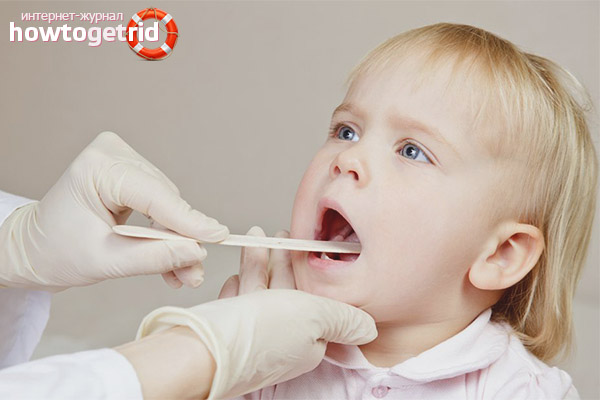
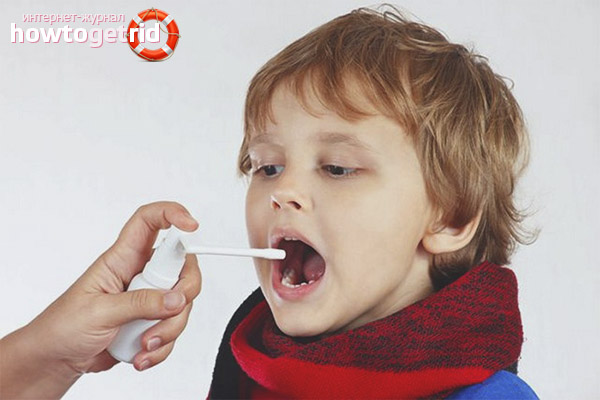
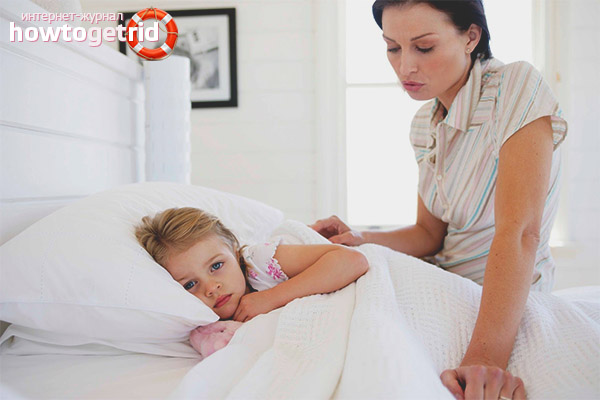
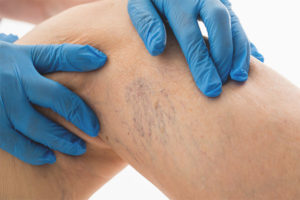
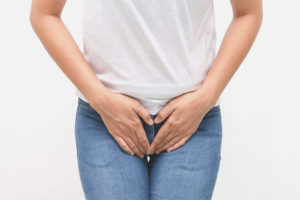
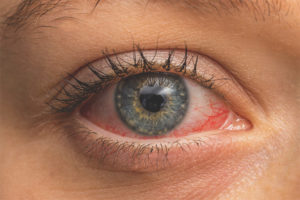


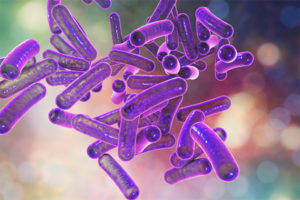
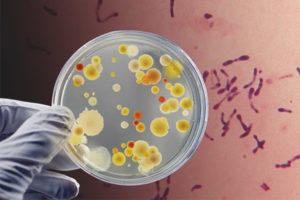

Submit